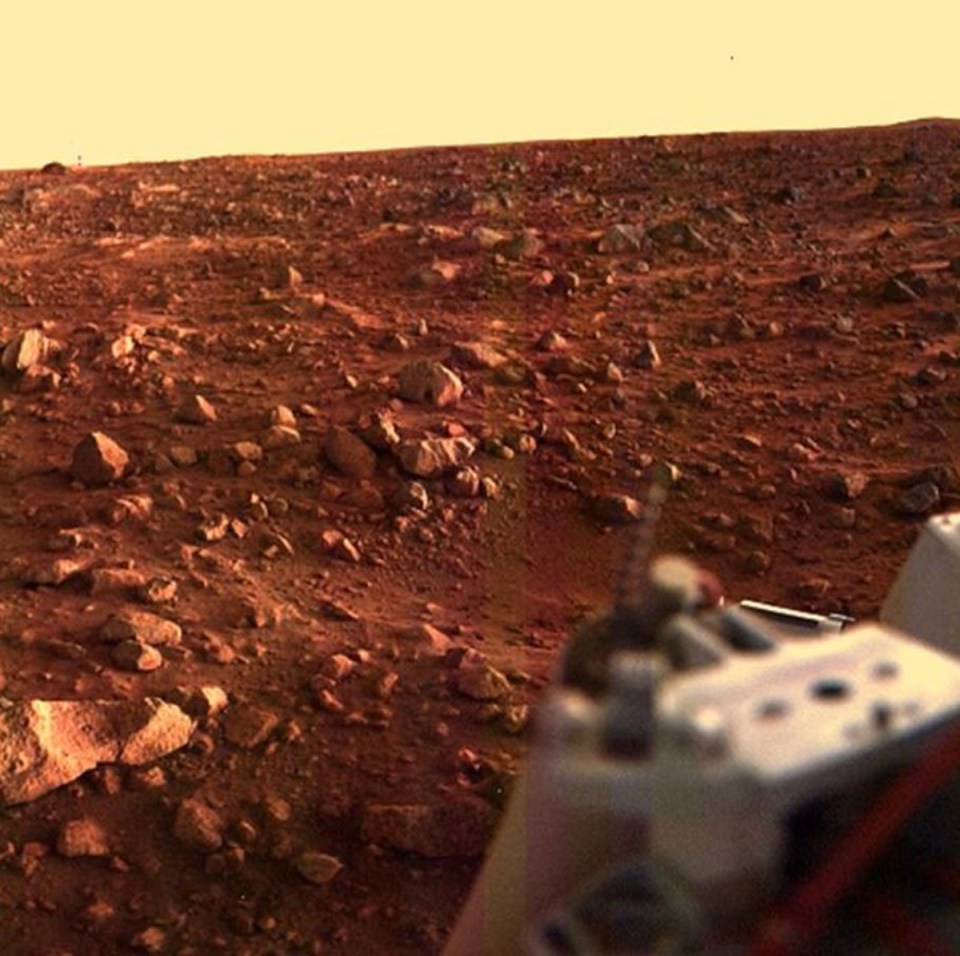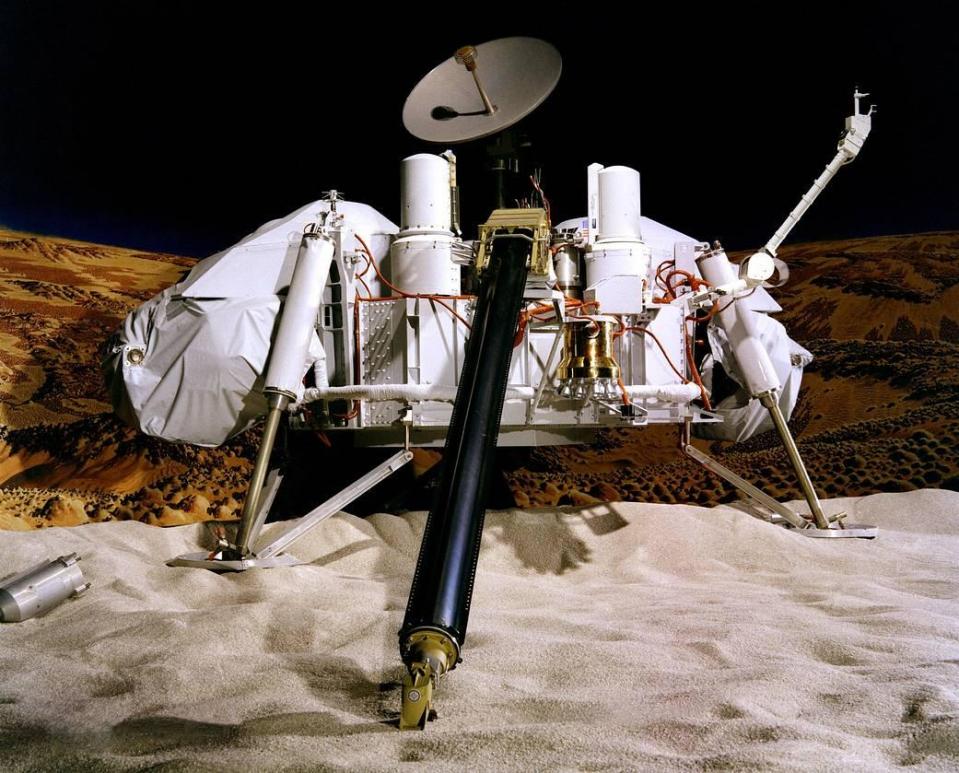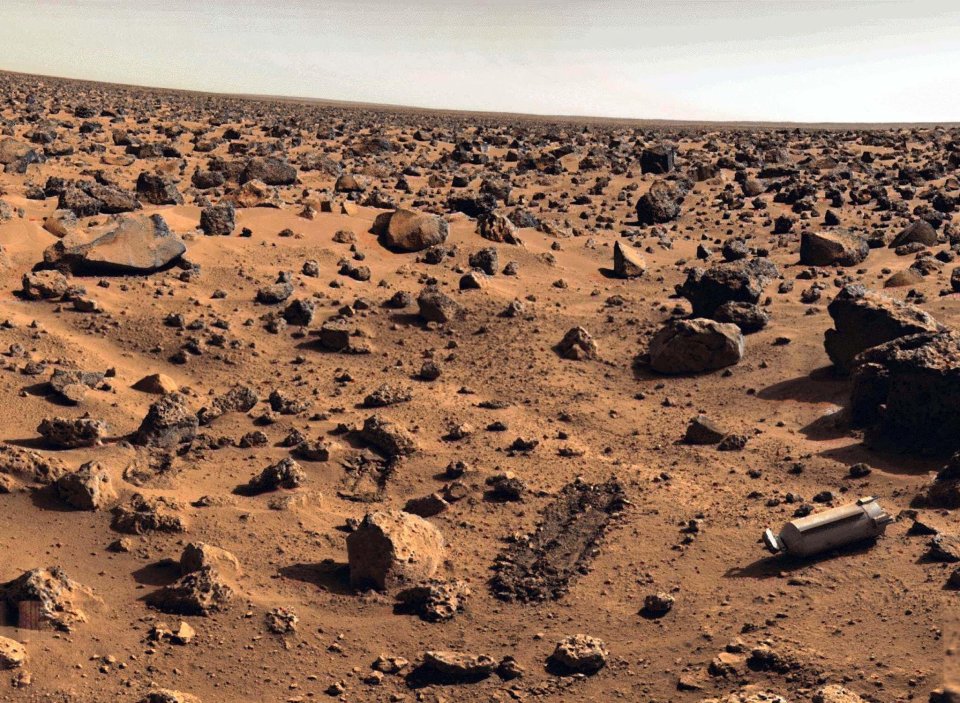Alien life was found on Mars in the 1970s, former Nasa scientist claims

A FORMER Nasa scientists is "convinced" we've already found aliens on Mars.
Dr Gilbert Levin, who worked on the Viking Mars landers in the 1970s, claims Nasa ignored evidence of life found by the probes on the planet's surface.
The Viking machines were sent to Mars more than 40 years ago tasked with exploring its dusty surface.
They included an experiment known as Labeled Release (LR) which was tasked with looking for signs of alien life.
The result came back positive, suggesting the probes had found evidence of life on Mars – but they were dismissed as false readings by Nasa.
Writing for last week, Dr Levin said he believes the landers really did find life.
"On July 30, 1976, the LR returned its initial results from Mars. Amazingly, they were positive," Dr Levin wrote.
"As the experiment progressed, a total of four positive results, supported by five varied controls, streamed down from the twin Viking spacecraft landed some 4,000 miles apart."
He added: "The data curves signalled the detection of microbial respiration on the Red Planet. The curves from Mars were similar to those produced by LR tests of soils on Earth.
"It seemed we had answered that ultimate question."
In the experiment, the Viking probes tested soil samples for biological chemicals given off by alien microbes.
If the result came back positive, a second test saw the landers cook the soil before looking for the chemicals again.
Heating up the sample would have killed off life as we know it, meaning that if microbes were present, the chemicals should have been detected in the first sample, but not the second.
According to Dr Levin, that's exactly what happened.
However, Nasa was unable to find any physical evidence that life was there. There was smoke, but no fire.
"NASA concluded that the LR had found a substance mimicking life, but not life," Dr Levin wrote in his article.
"Inexplicably, over the 43 years since Viking, none of Nasa's subsequent Mars landers has carried a life detection instrument to follow up on these exciting results."
Dr Levin argued that the results actually proved there was life on Mars.
Mars facts
Here's what you need to know about the red planet...
- Mars is the fourth planet from the Sun
- It is named after the Roman god of war
- The landmass of Mars is very similar to Earth but due to the difference in gravity you could jump three times higher there than you can here
- Mars is mountainous and hosts the tallest mountain known in the Solar System called Olympus Mons, which is three times higher than Everest
- Mars is considered to be the second most habitable planet after Earth
- It takes the planet 687 Earth days to orbit the Sun
- So far, there has been 39 missions to Mars but only 16 of these have been successful
And, he said, Nasa must do more to follow them up – because they could pose a significant threat to life on Earth.
"NASA maintains the search for alien life among its highest priorities," he wrote.
"Our nation has now committed to sending astronauts to Mars. Any life there might threaten them, and us upon their return. Thus, the issue of life on Mars is now front and center."
Dr Levin urged Nasa to repeat his experiments on Mars, and reanalyse the decades-old findings of the Viking landers.
"Such an objective jury might conclude, as I did, that the Viking LR did find life," he wrote.
"In any event, the study would likely produce important guidance for NASA’s pursuit of its holy grail."
TOP STORIES IN SCIENCE
In other news, Nasa has announced it will soon stop "hitching rides with Russia" and instead run all-American manned rocket flights from 2020.
A Nasa report revealed that Apollo 11 astronauts had no toilet and instead relieved themselves using bags taped to bums and "pee condoms".
And here's why some people still think the Moon landings were faked 50 years later – and the man who started the hoax theory.
Do you think we'll ever find life on Mars? Let us know in the comments!
We pay for your stories! Do you have a story for The Sun Online Tech & Science team? Email us at tech@the-sun.co.uk















